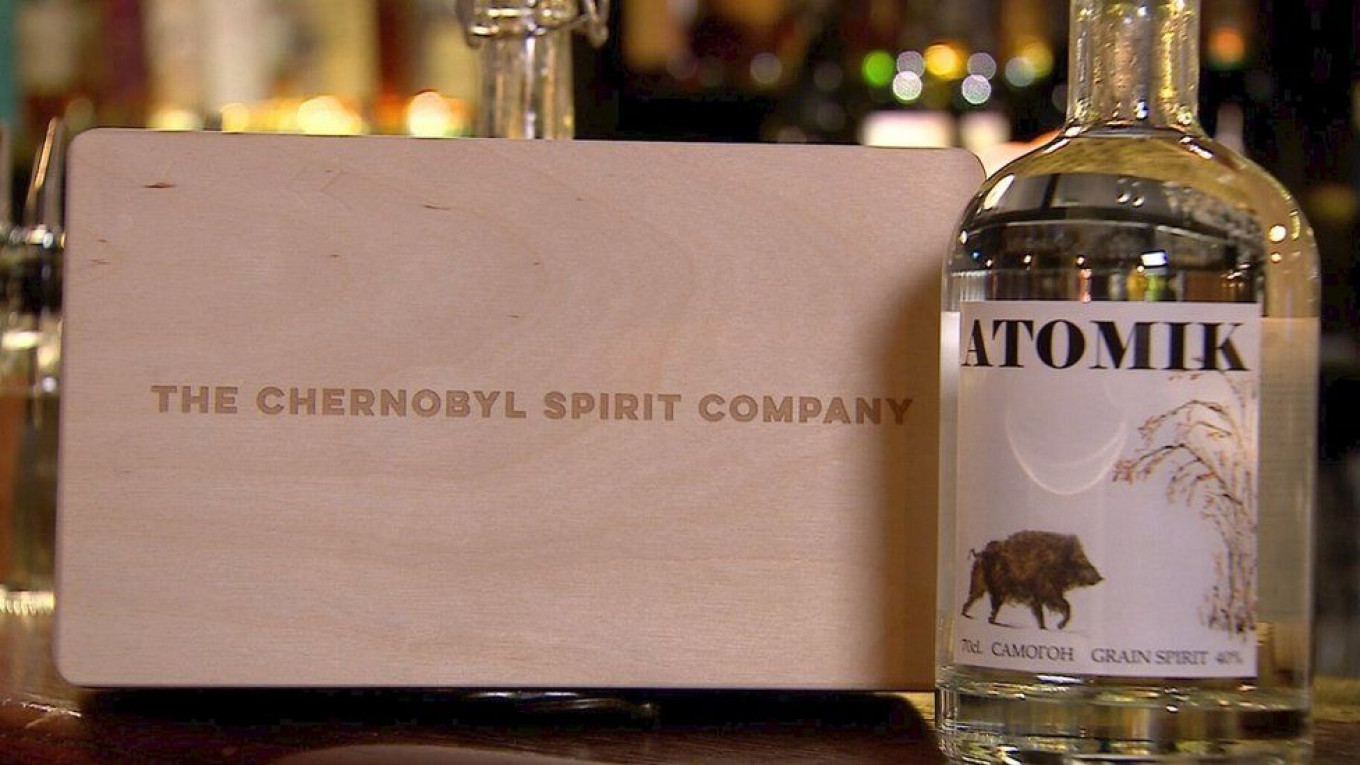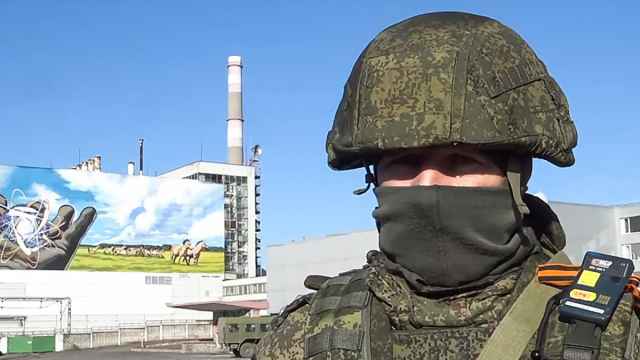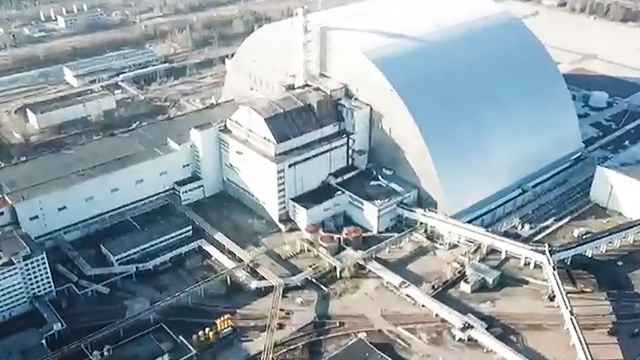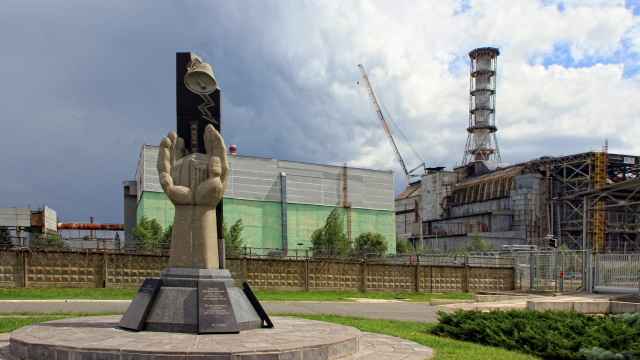Ukrainian authorities have confiscated the first batch of spirit drinks made from apples grown near the Chernobyl nuclear power plant, the beverage's British makers said Friday.
Prosecutors in Kiev seized the shipment of 1,500 UK-bound bottles of “Atomik,” which British and Ukrainian scientists started making in 2019 following years of research on the transfer of radioactivity to crops grown in the Chernobyl exclusion zone.
“It seems that they are accusing us of using forged Ukrainian excise stamps,” said environmental science professor and project leader Jim Smith.
“But this doesn't make sense since the bottles are for the U.K. market and are clearly labeled with valid U.K. excise stamps,” Smith said in a statement on Atomik’s website.
The BBC reported that the prosecutor’s office took the shipment from a truck at a distillery in western Ukraine’s Carpathians region on March 19. Atomik said in Friday’s statement that the confiscated product has not been returned.
Elina Smirnova, a lawyer who represents the British social enterprise The Chernobyl Spirit Company, accused Ukrainian law enforcement and security officers of violations.
“They have targeted a foreign company which has tried to establish an ethical ‘white’ business to first of all help Ukraine,” Smirnova said in Atomik's statement. “The actions of Ukrainian law enforcement agencies are damaging the reputation of Ukraine as an open country for doing business.”
Smith and his Ukrainian colleagues formed The Chernobyl Spirit Company with the aim of donating 75% of their profits to Ukrainians living in and around the Chernobyl exclusion zone, the area worst-hit by the world’s worst nuclear disaster in 1986.
Ukrainian authorities in charge of the exclusion zone management welcomed the scientists’ efforts to help local communities at the time.
Atomik’s makers say their artisanal spirit, based on Ukraine’s moonshine distillation methods, contains no more radioactivity than any other spirit drink.
Last year it switched to distilling high-proof spirits out of apples from the affected areas due to Ukraine’s tight regulations of grain spirits.
A Message from The Moscow Times:
Dear readers,
We are facing unprecedented challenges. Russia's Prosecutor General's Office has designated The Moscow Times as an "undesirable" organization, criminalizing our work and putting our staff at risk of prosecution. This follows our earlier unjust labeling as a "foreign agent."
These actions are direct attempts to silence independent journalism in Russia. The authorities claim our work "discredits the decisions of the Russian leadership." We see things differently: we strive to provide accurate, unbiased reporting on Russia.
We, the journalists of The Moscow Times, refuse to be silenced. But to continue our work, we need your help.
Your support, no matter how small, makes a world of difference. If you can, please support us monthly starting from just $2. It's quick to set up, and every contribution makes a significant impact.
By supporting The Moscow Times, you're defending open, independent journalism in the face of repression. Thank you for standing with us.
Remind me later.






